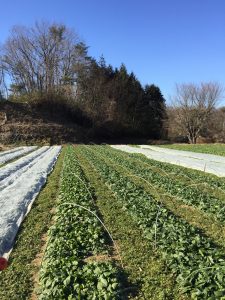
When I think about Japan, one of the first things that cross my mind is nature. From what I heard and what I saw in the past, I always had in mind that nature was embedded in the Japanese culture and that the people in the country had a healthy relationship with nature. However, my current experiences and the readings that we had in this course challenged my conception of nature in Japan. In fact, it turns out that Japan has a much more complex relationship with its environment for a variety of reasons. Japan’s geological characteristics and its population density are two aspects that make the natural environment uncertain. It is also worth noting that Japan’s efforts to transform nature have an extended history, which tells us a little more about the place nature has in a small country like Japan. After having spent a couple of days in Tokyo, I am now able to understand better the ways in which nature is being used in Japanese urban areas.
Furthermore, because finding space for nature might sometimes be problematic in dense areas, it is possible to say that it is sometimes being used as a facade to attenuate the industrial and polluting activities that affect the Japanese landscape and the environment as a whole. For instance, during our visit of the incinerator in Tokyo, our group stopped for some time by the miniature model of the incinerator plant that allowed us to see the exterior features of the facility. The group noticed how one of the facade of the plant was covered by plants and bushes in order to hide as much as possible the activity from the population, which in theory might affect the people leaving nearby and their businesses. While it is possible to question whether or not this kind of use is specific to Japan, it is definitely an aspect that reveals how nature can be used in a city like Tokyo where nature is not as much present.
Finally, over the past week and a half, I was able to understand why some communities and influential people emphasis the necessity for a country like Japan to redefine the relationship people have with nature and especially food. Japanese people try to provide answers to environmental and social problems by integrating and respecting nature as much as they can. During this trip, we have been learning organic agricultural practices and how it is essential to follow the law of nature if we are to protect our soils and food. As one of the leaders at Asian Rural Institute (ARI) said, “everything is around you, it is unnecessary to buy things if one wants to do agriculture.” I have learned at the institute that leaving in harmony with nature (which also includes insects) was the key for providing to people good and healthy food. On a similar note, we visited the Kino Shi Juku organic farm in order for us to have a point of comparison with the work we do at ARI. The farmer took us to the place where he grows spinach and told us that the product must be eaten not when people want to eat it but only when when it is ready to be eaten, which gives us a good idea of the philosophy organic farmers want to integrate.
Recent Comments